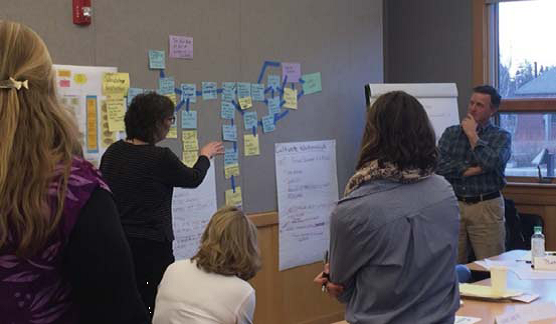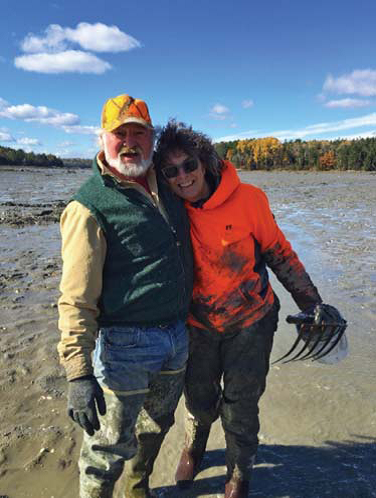Ever wonder what happens in the intertidal zone – that area that is above water at low tide and under water at high tide? As it turns out, lots happens! And lots of people use and benefit directly or indirectly from this area teeming with life.
Acadia National Park, in Maine, NE USA saw many people come together to discuss and work collaboratively to help keep the intertidal zone in this gorgeous park healthy. This workshop, organized and hosted by Acadia National Park and the Schoodic Institute, with support from Maine Sea Grant and FOS, was the second in a series of workshops that are bringing together a wide range of stakeholders, including clammers, wormers, researchers, park officials, educators, and local and state government representatives. This group is collaborating on how to best manage and conserve the intertidal zone for existing and future generations.
Using tools and processes such as results chains, stakeholders worked to clarify key actions for the immediate future and the rationale for these actions.
One action sure to foster greater understanding and collaboration is the “ride-along” (or “clam-along”) where representatives from different interests get a chance to accompany one another on work outings.
Reactions to the workshop and process were overwhelmingly positive – as an example, one stakeholder expressed, the process was “really, really valuable. I feel very grateful to have been here! I liked the…collaborative emergent organization.”
While relationships between harvesters and law enforcers in the region have been tense in recent months, this workshop and the alliances formed through it are a bright spot showing the strength of open dialogue and a common language and solid tools for framing discussions and making

Using results chains to tease out a strategy to cultivate relationships

Becky Cole-Will and Fred Johnson get muddy and happy!
